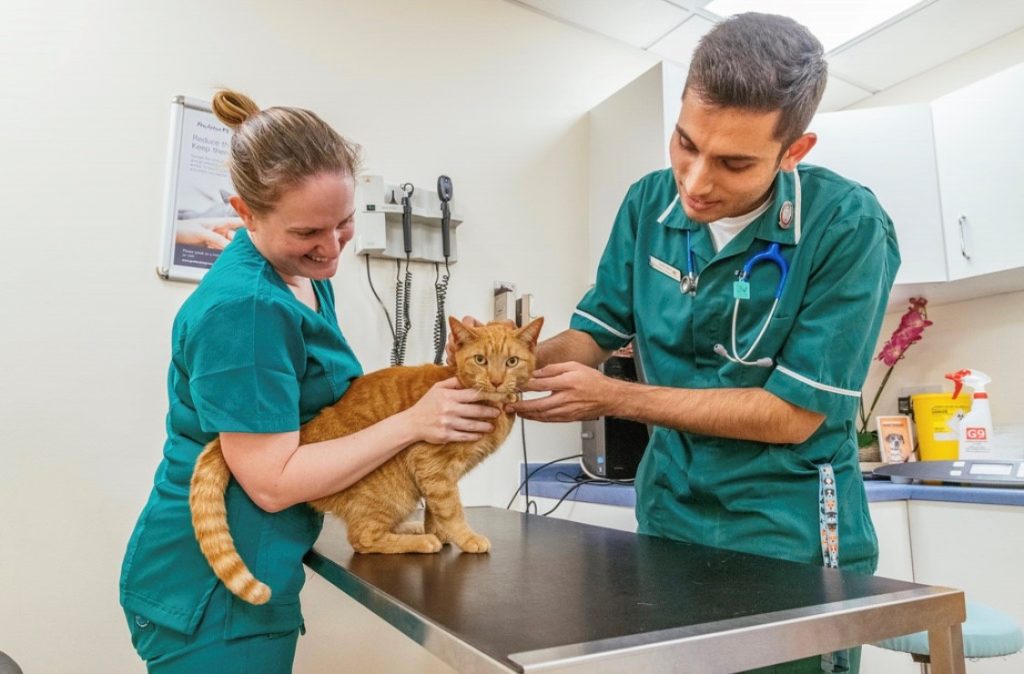Veterinary Nursing Awareness Month
9 May 2022
There’s never been a better time to be an RVN! #VNAM2022

The decision to become an RVN can be a long and challenging road. With all the assignments, exams and practical skills to complete. It can feel like a mountain to climb.
Despite these challenges, it all seems worth it when you see your skills log complete! And that feeling of pride when you post it on social media, which seems to have become a rite of passage for all RVNs.
So, what happens once you have qualified?
What do you do next?
For many RVNs they will go on to work in the practice where they trained, very often working in primary care. For those who trained in a referral centre or hospital setting, you can choose to follow a speciality you’re passionate about.
What if you don’t know what you want to do with your RVN qualification or you haven’t found your niche?
The last couple of years dealing with a pandemic, a few things have become very clear. First of all, where have all the RVNs gone?
There seems to be a lack of RVNs, but plenty of jobs vacant, so why is this? I suspect many RVNs either make the move into management or educational roles as they get into the later stages of their careers. With the popularity of diversification, many RVNs are putting their talents to use in other ways. Which is AMAZING to see!
Second of all, the pandemic has highlighted that veterinary surgeons need RVNs. Without them they are unable to fulfil their duty of care to their patients.
I have always been lucky enough to work in RVN-led hospitals and so I understand the importance of what we do. I’ve had conversations which proves that practices across the UK are changing. That they recognise the importance of using an RVN’s skills. They are able to help reduce the workload for vets. Which in turn allows RVNs to find more fulfilment from their roles.
The third and most important aspect to why I am writing this article is this. There has never been a better time for RVNs to be in control of their own careers! It’s highlighting the hard work and determination that we continue to put in every day. As well as the support we show our colleagues, owners and their pets.
So, why am I saying this?
Often I see posts on social media with RVNs asking about:
- Rates of pay
- Employee benefits
- Working patterns
- CPD allowance
- OOH working
Many of these posts get answered as private messages. Which is why this is a post that is often re-shared. Due to the cost of living there will be some differences in salaries across the UK. But, as I often comment on these posts “you need to know your worth.” Forget what other RVNs get paid in your practice! Work out what you bring to the table as yourself, understand your worth and ask for it!
We are living in a time where RVNs are being offered enhanced salaries. With increased CPD allowance, flexible working, no OOH work. There’s structured career progression paths, advanced training, a signing on bonus, relocation costs.
There is an increased demand for RVNs across the UK. We are in a much better position to source jobs that suit our talents, interests, careers, and home lives. Which is inclusive of salaries that match what we are worth. RVNs are in the driving seat of their own careers, like we have never seen before.
The next difficult part again often seen on social media is “how do I start this conversation with my boss?” This can be a daunting prospect for anyone because discussing money can be AWKWARD! (Let’s be honest).
I often find the best way to approach this is to arrange a suitable time to meet with your line manager. This takes you both away from the clinic floor. Side-blinding them at the end of a busy day, won’t set you off to a good start. Once you have a meeting in the diary spend time preparing for your conversation. Pinpoint all the things that you bring to the practice. Even small things that may sound silly! They all contribute to the environment that you create and support at work.
During your meeting, highlight why you have started this conversation. Then work your way through any examples of why you are asking for extra benefits to your role. Remember, these don’t need to be an increase in salary, it could be more holidays or a bigger CPD budget.
Don’t compare yourself to others. Be proud of your own merits and be prepared that the conversation might not end with the desired outcome. Often your line manager will need time to speak to other senior staff or look at budgets etc.
There may be lots of back and forth between yourself and your line manager. But often you will receive what you need, or a compromise will be reached.
Remember: There are no rules on how often you can discuss your benefits and/or salary with your employer.
It is all about ‘knowing your worth’. And making sure that you are receiving appropriate remuneration for all the hard work. Including any CPD that you do, and continue to feedback to your practice. For the benefit of your team, owners and patients.
Andy Bell
RVN, CertVNECC, MSc, BSc(Hons)

